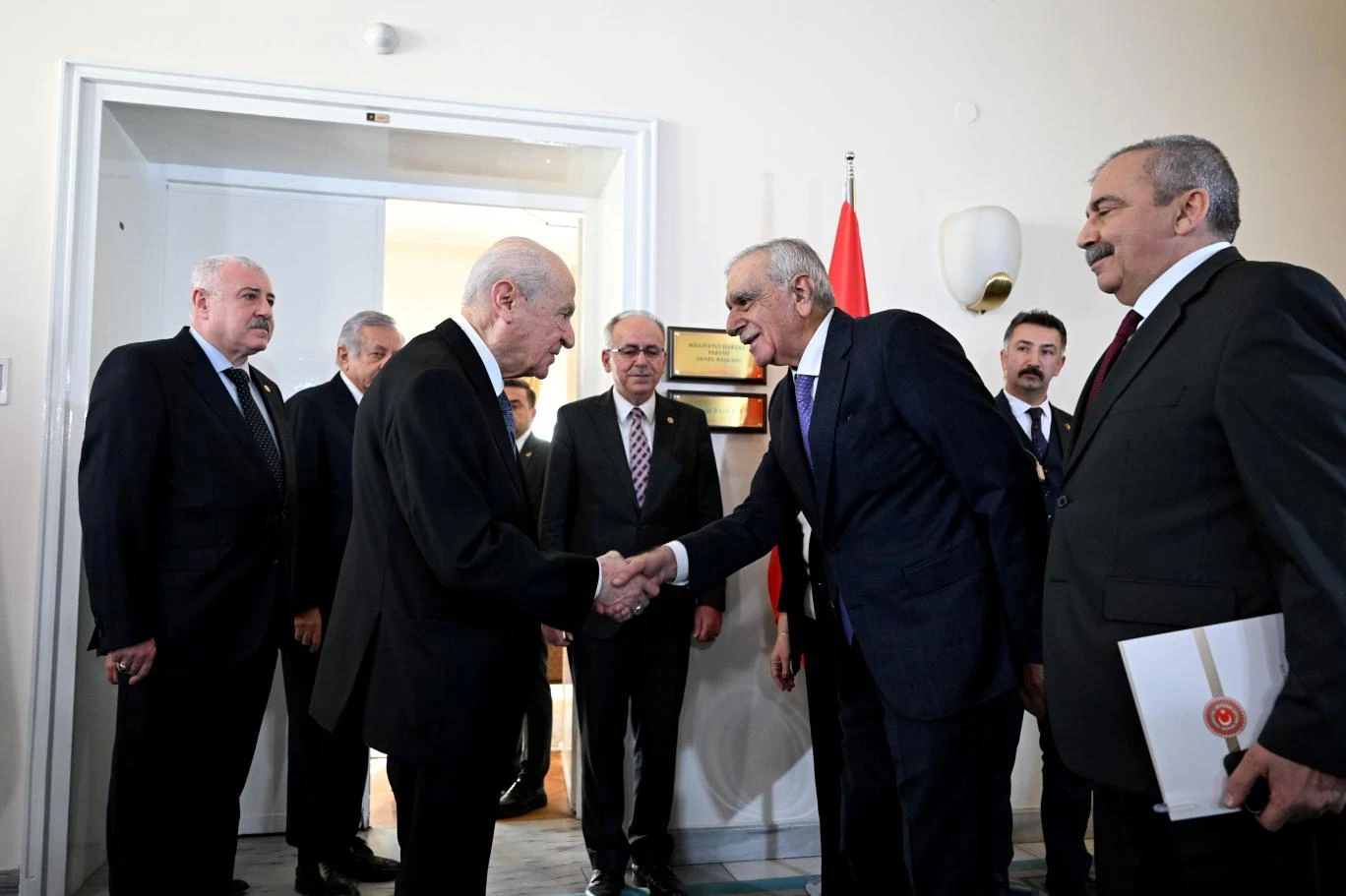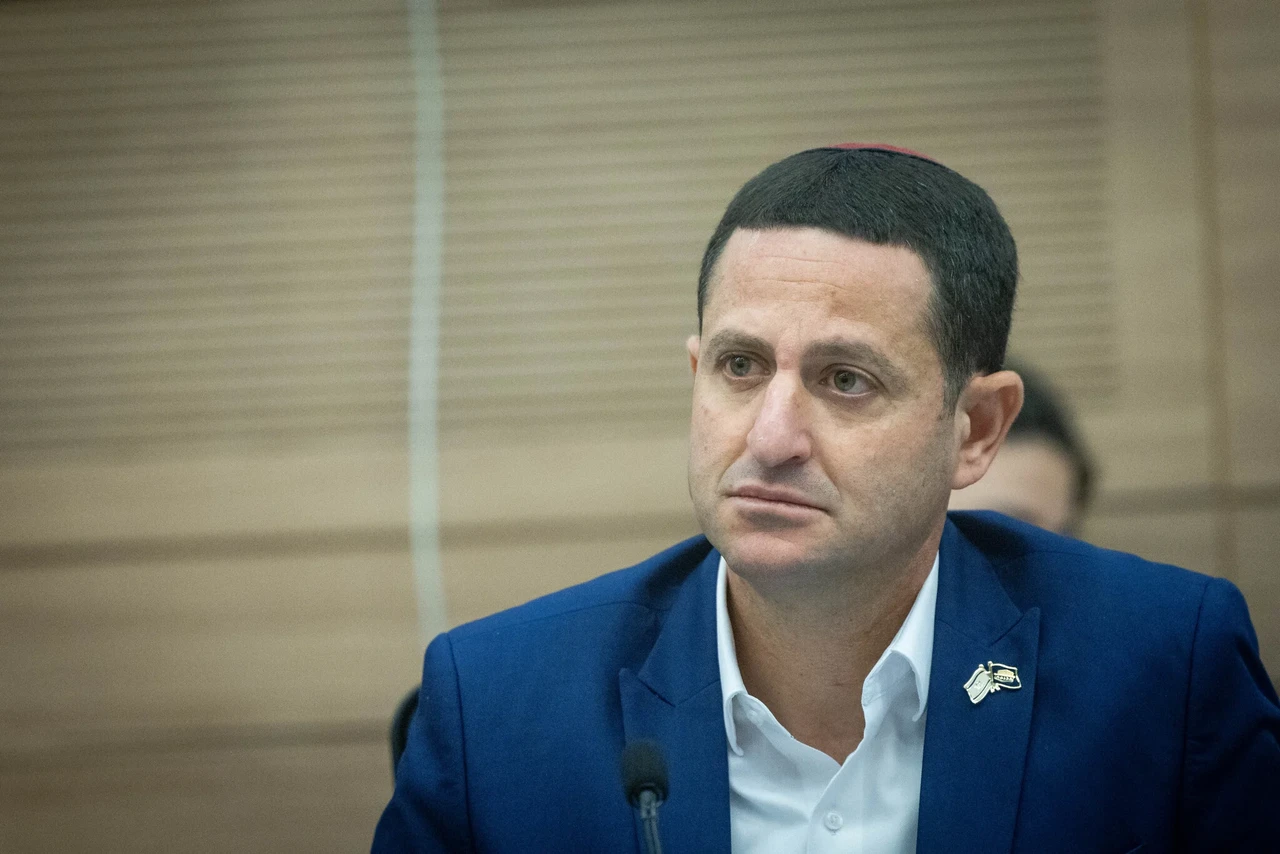Every political party in Türkiye must serve nation: MHP leader Bahceli
 Turkiye's Nationalist Movement Party (MHP) leader Devlet Bahceli makes a speech during his party's group meeting at the Turkish Grand National Assembly in Ankara, Turkiye on January 07, 2025. (AA Photo)
Turkiye's Nationalist Movement Party (MHP) leader Devlet Bahceli makes a speech during his party's group meeting at the Turkish Grand National Assembly in Ankara, Turkiye on January 07, 2025. (AA Photo)
Devlet Bahceli, the leader of the Nationalist Movement Party (MHP), emphasized that every political party in Türkiye must place the interests of the nation first.
In a recent statement, he outlined the expectations for political parties to be considered “Türkiye parties,” listing them in 24 key points.
Bahceli, continuing his assessments on current political issues, added a new article to his series in the Turk Gun newspaper during Ramadan Bayram, also known as Eid al-Fitr. His latest piece focused on “Becoming a Türkiye Party.”
‘Every party must be a Türkiye party’
In his article, Bahceli stated the following: “Every active political party in Turkish politics must have the Turkish nation as its primary source and Türkiye as its identity. Every political party must be a party of Türkiye.
Accepting and defending the national and spiritual values of a nation means politically expressing the societal center. In the Turkish political arena, where national stance and common values are central, every political party must define itself according to this center.”
Bahceli also underscored that the founding philosophy of the Republic of Türkiye and the first four articles of the Constitution must never be contradicted or violated by the goals, programs, activities, or foundations of any political party. He emphasized that the political system’s primary responsibility is to address inherited issues that could pose risks and dangers to Türkiye.
“The elimination of misunderstandings, cold attitudes, hardened dialogues, and prejudices is our sincere wish,” Bahceli added. He further emphasized the importance of seeing regional and local differences as complementary aspects of Turkish culture and urged for a general consensus in society to promote peace and harmony.

24 Expectations from Türkiye’s parties
In his article, Bahceli also shared the expectations from political parties that aim to be considered “Türkiye parties.” He listed 24 key principles:
- Commitment to the founding principles of the Turkish state and the fundamental qualities of the Republic.
- Acting in accordance with Türkiye’s legal system.
- Emphasizing a shared history, culture, and civilization, as well as a collective will to live together.
- Focus on citizen-centric policies.
- A political approach focusing on the collective societal issues of Türkiye, not regional or specific identities.
- Internalizing national unity.
- Rejecting terrorism and violence as methods, condemning those who use terrorism as a tactic.
- Acting according to national goals and policies that represent Türkiye.
- Working for Türkiye’s development, prosperity, security, unity and survival.
- Avoiding divisive, exclusionary, provocative and inflammatory rhetoric.
- Developing discourse that aligns with the constitutional order and legal norms.
- Not legitimizing terrorist organizations like PKK, FETO and Daesh.
- Focusing on inclusive Turkish citizenship rather than identity-based politics.
- Striving for Türkiye’s unity, survival, common future and strength.
- Increasing political participation and ensuring diversity within party organizations.
- Abandoning ethnic-based political elements.
- Strengthening communication with state institutions.
- Ending anti-state politics and rhetoric.
- Observing rituals like singing the national anthem and displaying the Turkish flag.
- Supporting the founding values of the Republic and honoring Ataturk.
- Grieving for the martyrs, celebrating victories in national sports events.
- Committing to live together in a unitary structure within Türkiye’s national borders, united under one state, one nation, one homeland, and one flag, while adhering to the first three articles of the Constitution.
- Developing policies for a strong Türkiye and a prosperous society.
- In short, saying “First, my country and my nation,” and believing in a united Türkiye.
According to Bahceli, the future of Türkiye relies on political parties working together to foster national harmony and address the nation’s challenges with a unified approach.



